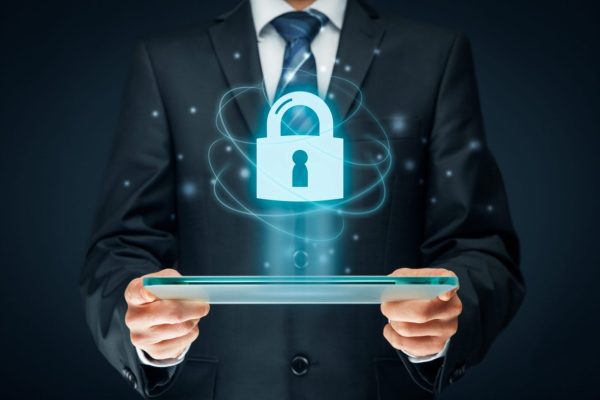
Got your personal data and other sensitive information online? Then you should take adequate and updated measures to keep it safe. If you think a simple antivirus software with a firewall is the best protection available against cybercrimes, read this post. It presents some expert tips on the steps you can take to protect yourself from online threats.
Ensure to Update Regularly
While this point may seem like a no-brainer, it is worth reiterating the importance of having the latest version of antivirus software installed on your computer and mobile devices. Lots of people take this aspect for granted and continue using old versions without realizing the risks associated with doing so.
Updating your antivirus software is crucial because manufacturers continually work on eliminating vulnerabilities in their products and making the solutions available to users as soon as they can. Also, most malware on the internet skips targeting new (and hence, unknown) security loopholes. It targets the vulnerabilities that have been fixed in the latest versions to attack systems that haven’t been updated yet.
System owners continue to use old software for several reasons, often because updates cause the software to modify in certain ways, which may require relearning or resetting existing processes. This may turn out to be complex and disturb the normal flow of work. Also, paid updates can hit the pocket hard.
While there are no easy answers to the above concerns, it’s important to know that updating pays off in the long term as it enables you to deter major data breaches, plug security gaps, and keep your system protected.
Apart from updating your programs and software, it also makes perfect sense to back up your data on a weekly basis. Use an external hard drive to avoid losing your photos, documents, music, and programs to hackers or system crashes.
Use VPN Technology
VPN or Virtual Private Network helps in establishing a connection between a computer and a secure server, which ultimately connects the user to the internet. Using VPN is a great way to secure web activities, data, personal information, and monetary transactions from any part of the world.
While most online security experts will suggest not to use public Wi-Fi hotspots for the fear of the security of your connection and your data privacy being compromised, using a VPN can make things much safer. It can also help protect you from identity theft. VPN cloaks your IP address so third parties cannot track you easily and access your personal information. It can also bypass firewalls.
The use of mobile VPN technology on smartphones and tablets is quickly gaining prominence. With users making use of mobile banking apps and accessing their corporate email accounts, secure communication is receiving tremendous attention.
You need not be a tech guru to install a VPN connection. All you need are the accurate VPN details to get started. If you use multiple devices, install it in your router so that all connected devices are secured.
Certain recent developments have brought the legality of VPN connections into question. There’s no need to panic as often, VPNs are legal. However, depending on the country you’re using it in, the laws and restrictions can differ.
For example, in March 2018, the Chinese government announced that only government-approved VPNs can be used. This means before you’ve decided on which VPN to use in China, you will have to ensure that service providers have gained the required permits to operate in the country. Russia made a similar announcement in November 2017 as a measure to prevent the spreading of “extremist materials” and block access to “unlawful content” by its citizens on the internet.
Do Not Underestimate Strong and Unique Passwords
While we’re already aware of the importance of setting cryptic passwords, it doesn’t hurt to superimpose this tip because hacked passwords and cyber-attackers are usually successful because of poor or no password protocol.
Security for all your sensitive data, wireless networks, and equipment connected to the internet needs to be fortified with unique log-in credentials – those which comprise letters, numbers, and symbols. Further, they should not be made of commonly used words, dictionary expressions, or dates such as birthdays or anniversaries. In short, they should be capricious. Master documents created, if any, to note user names and passwords should be encrypted with their own passcode and stored securely.
When it comes to passwords, keep the following in mind:
- Instead of setting short passwords made of random characters, set along and relatable phrases as your password.
- Make your passwords unique and do not share them with anyone as doing so is highly unsafe.
- As far as possible, avoid using your credentials on other systems. Change your passwords regularly since you never know when they may have been compromised. This can make your system vulnerable to cyberattacks.

Watch out for Third-Parties Accessing Your Data
Almost every detail you enter online may be shared with a network of third parties such as a company and its employees, partners and associates, suppliers and vendors, and such. This can prove to be a potential loophole for malware and hackers to exploit and access your system.
The best and the easiest way to prevent data leaks by third parties is to use temporary passwords, which enable you to limit their access to your data and keep you in the know of who connects to your network along with the reason. This practice upholds data privacy. If you share your devices with others, monitoring user action is also beneficial as it helps you discover malicious activity and conduct timely investigations.
Do Not Click Random Links
Beware of phishing scams. According to PhishMe’s Enterprise Phishing Resiliency and Defense Report, phishing attempts have grown 65% in 2016. Further, the Verizon Data Breach Investigations Report reveals that 30% of phishing messages get opened by targeted users and 12% of those users click on the malicious attachment or link.
Whether it is a seemingly harmless email from a so-called trustworthy sender asking for your user name, password, and personal information, or a fake website that prods you to enter your data, phishing scams are evolving quickly. Avoid clicking on such links. You can always access any company’s website directly, or verify the request received on the phone before providing sensitive information.
This also applies to clicking on links and attachments in emails. These can contain viruses, computer worms, or Trojan programs, which is why it is best to never open suspicious emails from unknown senders. Delete or block such senders without clicking on these emails.
Use the Cloud with Caution
From the security point of view, it is best to not store your confidential information on the cloud. Despite its benefits such as easy accessibility to information from anywhere and cost savings, it is prudent to keep sensitive data out of the cloud. These services operate from remote servers controlled by third parties who may be lax with their security measures. It is, therefore, suggested to store such information on your own network.
Conclusion
When it comes to protecting sensitive information, it is best to leave no stone unturned in heightening online and offline security measures. It is best to make your information accessible to the least number of people possible. Change passwords frequently and create unique ones. Keep your system updated and employ VPN technology to keep your data safe. Avoid using cloud services to store personal data. The above measures are expert-approved and will go a long way in safeguarding your devices and online data from being exploited by vested interests.
